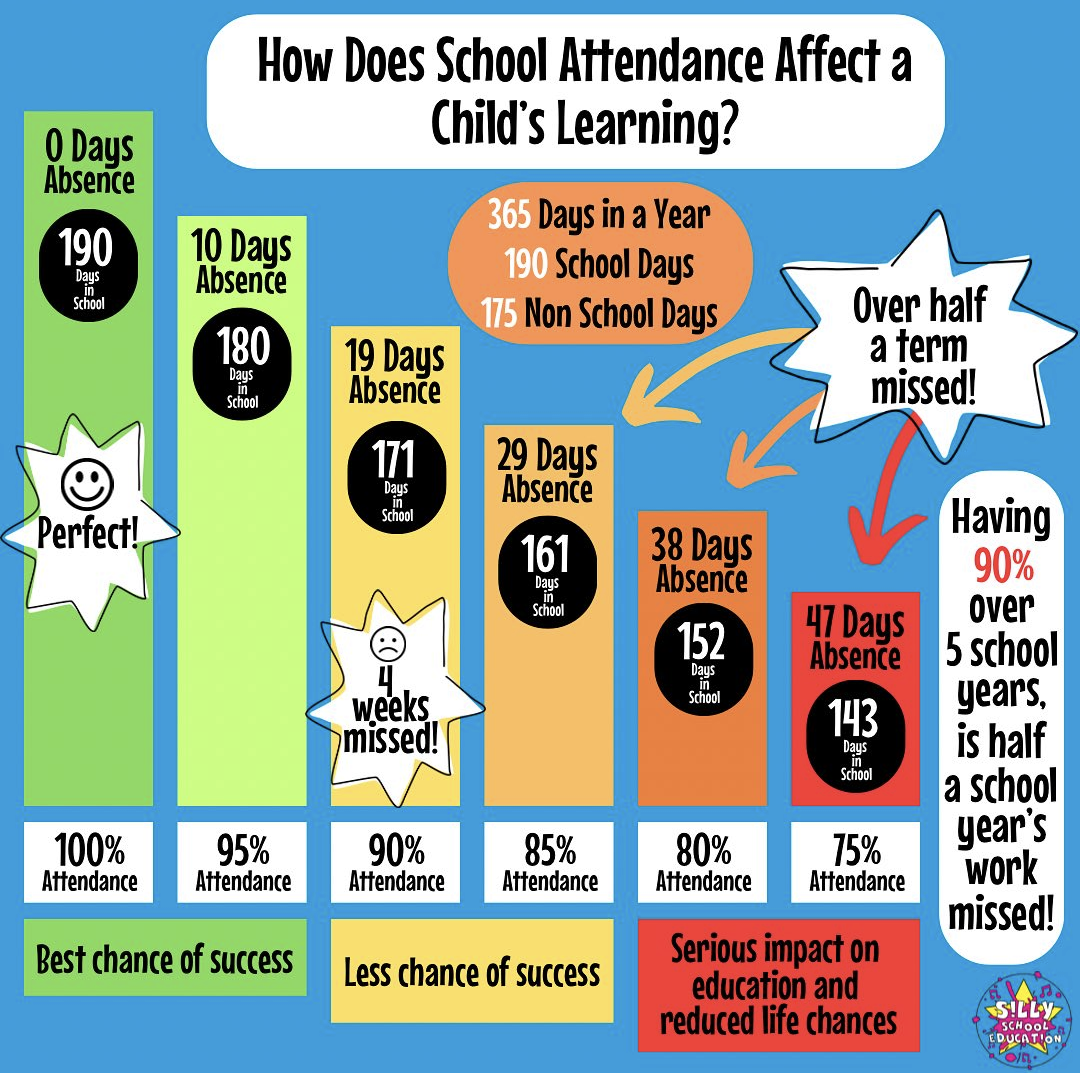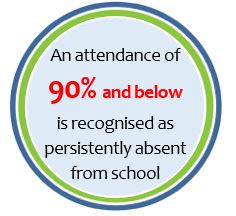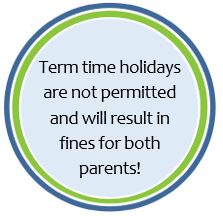

Please see the local and national school attendance expectations below:
Is my child too ill for school?
We understand it can be tricky deciding to keep your child off school or not. Please see the NHS information below to support your understanding.
If your child is well enough to go to school but has an infection that could be passed on, such as a cold sore or head lice, let their teacher know.
Follow the advice below if your child does not have coronavirus symptoms, or they had a test, and it was negative (they do not have Coronavirus).
Coughs and colds - It's fine to send your child to school with a minor cough or common cold. But if they have a fever, keep them off school until the fever goes.
High temperature - If your child has a high temperature, keep them off school until it goes away.
Chickenpox - If your child has chickenpox, keep them off school until all the spots have crusted over. This is usually about 5 days after the spots first appeared.
Cold sores - There's no need to keep your child off school if they have a cold sore.
Conjunctivitis - You don't need to keep your child away from school if they have conjunctivitis. Do get advice from your pharmacist. Encourage your child not to rub their eyes and to wash their hands regularly.
Ear infection - If your child has an ear infection and a high temperature or severe earache, keep them off school until they're feeling better or their high temperature goes away.
Hand, Foot and Mouth Disease - If your child has hand, foot and mouth disease but seems well enough to go to school, there's no need to keep them off.
Head Lice and Nits - There's no need to keep your child off school if they have head lice.
Impetigo - If your child has Impetigo, they'll need treatment from a GP, often with antibiotics. Keep them off school until all the sores have crusted over and healed, or for 48 hours after they start antibiotic treatment.
Ringworm - If your child has Ringworm, see your Pharmacist unless it's on their scalp, in which case you should see a GP. It's fine for your child to go to school once they have started treatment.
Scarlet Fever - If your child has Scarlet Fever, they'll need treatment with antibiotics from a GP. Otherwise, they'll be infectious for 2 to 3 weeks. Your child can go back to school 24 hours after starting antibiotics.
Slapped cheek syndrome - You don't need to keep your child off school if they have Slapped Cheek Syndrome, because once the rash appears, they're no longer infectious. If you suspect your child has slapped cheek syndrome, take them to see a GP and let their school know if they're diagnosed with it.
Sore throat - You can still send your child to school if they have a sore throat. But if they also have a high temperature, they should stay at home until it goes away. A sore throat and a high temperature can be symptoms of tonsillitis.
Threadworms - You don't need to keep your child off school if they have threadworms. Speak to your pharmacist, who can recommend a treatment.
Vomiting and diarrhoea - Children with diarrhoea or vomiting should stay away from school for 2 days (48 hours) after their symptoms have gone.
Coronavirus (COVID-19)
Your child should try to stay at home and avoid contact with other people if they have symptoms of COVID-19 and they either:
-
have a high temperature
-
do not feel well enough to go to school or do their normal activities





